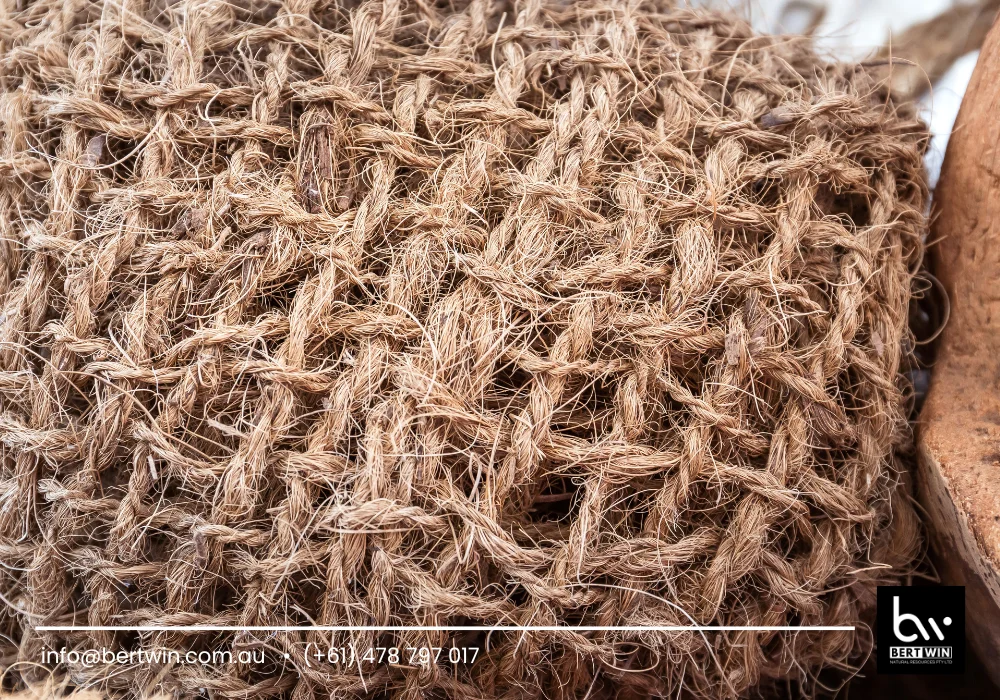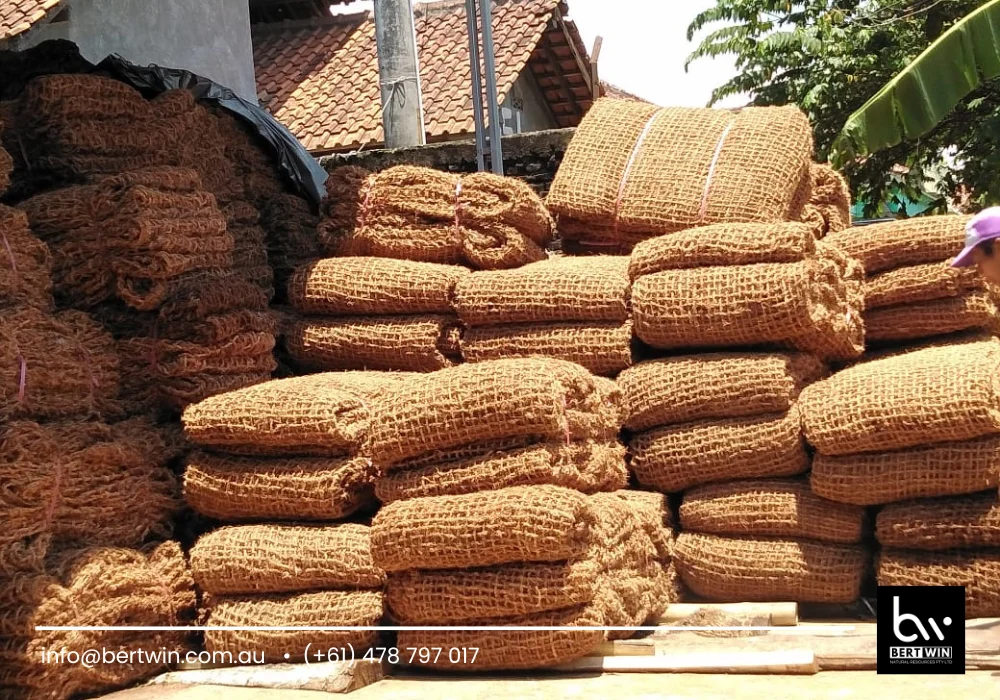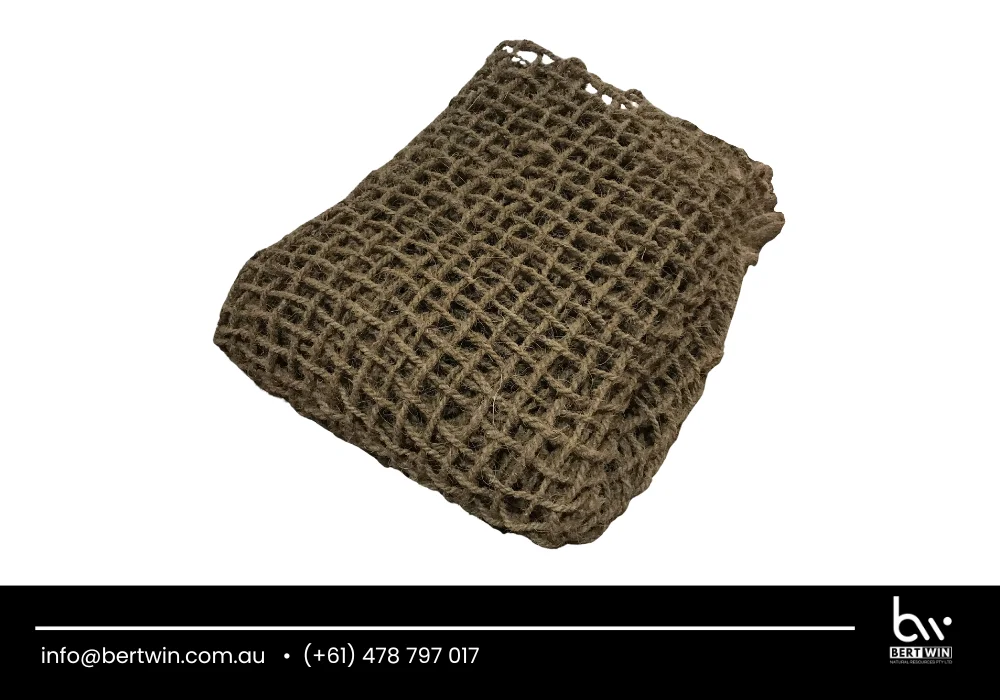Coco mesh is used for various applications in Australia, providing an eco-friendly and versatile material that contributes to sustainable practices in several industries. This article explores the key areas where coco mesh is used, its benefits, limitations, and its growing demand as an environmentally conscious solution in Australia. What coco mesh is used for in Australia?

What is Coco Mesh?
Coco mesh is a natural material made from the fibers of coconut husks, commonly referred to as coir. These fibers are known for their strength, flexibility, and biodegradable nature, which make them highly useful in various applications. The fibers are processed and woven into a mesh structure, which can be used in different industries such as agriculture, landscaping, and erosion control.
Unlike synthetic materials, coco mesh is biodegradable, meaning that it will naturally decompose over time. This makes it an environmentally friendly option compared to synthetic fibers, which contribute to long-term pollution. However, it’s important to note that coco mesh is not water-resistant and can last anywhere from 6 months to 1 year in extreme weather conditions, depending on the environmental exposure. What is coco mesh is used for in Australia?
What is coco mesh is used for in Australia
1. Erosion Control
Erosion is a significant problem in many parts of Australia, especially in areas prone to heavy rainfall or high winds. Coco mesh plays a crucial role in erosion control by stabilizing soil and preventing it from being washed away by water or blown away by wind. It is particularly effective in coastal areas, riverbanks, and regions with unstable or loose soil.
The coco mesh is laid over the soil to help hold it in place while vegetation is encouraged to grow. The natural fibers in the mesh bind with the soil, making it more resistant to erosion. Over time, as the mesh biodegrades, the soil becomes more fertile, allowing for long-term soil stability. This application helps to combat erosion in vulnerable areas while promoting the growth of native plants and vegetation.
2. Landscaping and Gardening
Coco mesh is widely used in landscaping and gardening for its ability to provide support for plants while being environmentally friendly. One of its most common uses in this field is for vertical gardening. The mesh structure provides an excellent base for climbing plants, such as vines and creepers, to grow vertically. This is particularly useful in smaller gardens or urban spaces where space is limited.
In addition to vertical gardens, coco mesh is also used in raised garden beds and retaining walls. It helps to reduce soil erosion, holds soil in place, and prevents it from washing away during heavy rainfall. It also aids in water retention, which is essential for maintaining healthy plants in dry climates. Gardeners appreciate coco mesh for its flexibility and the natural aesthetic it brings to outdoor spaces.
However, while coco mesh helps retain moisture in garden beds, it is not fully water-resistant and can degrade quickly in wet conditions. Its lifespan in gardens is typically 6 months to a year, depending on exposure to weather elements. Nonetheless, it remains a sustainable alternative to synthetic materials like plastic mesh or landscaping fabric.

3. Reforestation and Erosion Mats
Coco mesh is an essential component in reforestation efforts, especially in areas affected by deforestation, wildfires, or mining activities. In these cases, coco mesh is used as an erosion mat to protect newly planted saplings and prevent the soil from washing away before plants are established. These mats are laid over the soil, providing a protective layer for young trees and plants.
In reforestation projects, the coco mesh helps create a more favorable environment for plant growth by stabilizing the soil and holding moisture in place. The biodegradable nature of coco mesh means that it gradually breaks down over time, allowing the plants to grow and establish roots without the need for ongoing maintenance.
As a temporary solution, coco mesh provides critical protection during the early stages of plant growth, but it will eventually degrade within 6 months to 1 year in harsh weather conditions. This degradation cycle allows for the successful establishment of plants and a return to a natural, sustainable ecosystem.
Benefits of Using Coco Mesh
- Sustainability: One of the key benefits of coco mesh is its sustainability. It is made from renewable resources—coconut husks—which are otherwise often discarded as waste. By utilizing these fibers in coco mesh, the product provides an eco-friendly alternative to synthetic materials that contribute to pollution.
- Biodegradability: Unlike plastic and other non-biodegradable materials, coco mesh will naturally decompose over time. This feature makes it an environmentally responsible choice, especially in erosion control and gardening applications.
- Support for Plant Growth: Coco mesh aids in the growth of plants by creating a stable environment for their roots. It helps retain moisture and prevents soil erosion, making it easier for plants to establish themselves, especially in challenging environments like coastal areas or areas prone to wildfires.
- Versatility: Coco mesh is used in a wide variety of applications, from landscaping and vertical gardens to erosion control and reforestation. Its flexibility allows it to be adapted for different uses, making it a versatile material for both domestic and industrial purposes.
Limitations of Coco Mesh
- Not Water-Resistant: While coco mesh helps retain moisture, it is not water-resistant and can degrade rapidly in wet conditions. Its lifespan is typically between 6 months to 1 year in extreme weather conditions, which limits its use in certain environments.
- Maintenance: Due to its biodegradability, coco mesh may require replacement in high-exposure areas, particularly in regions with frequent rainfall or strong winds. However, this also means that it doesn’t contribute to long-term environmental pollution once it degrades.

Conclusion
Coco mesh is used for a variety of applications in Australia, offering a sustainable and versatile solution for erosion control, landscaping, and reforestation. Despite its limitations, such as a limited lifespan in extreme weather and its lack of water resistance, coco mesh remains a valuable product for industries and individuals seeking eco-friendly alternatives. Its biodegradable nature, support for plant growth, and sustainability make it a preferred option for many projects focused on environmental conservation.
For further information about coco mesh is used for, you may contact WhatsApp at (+61) 478797017 or via email at info@bertwin.com.au.
